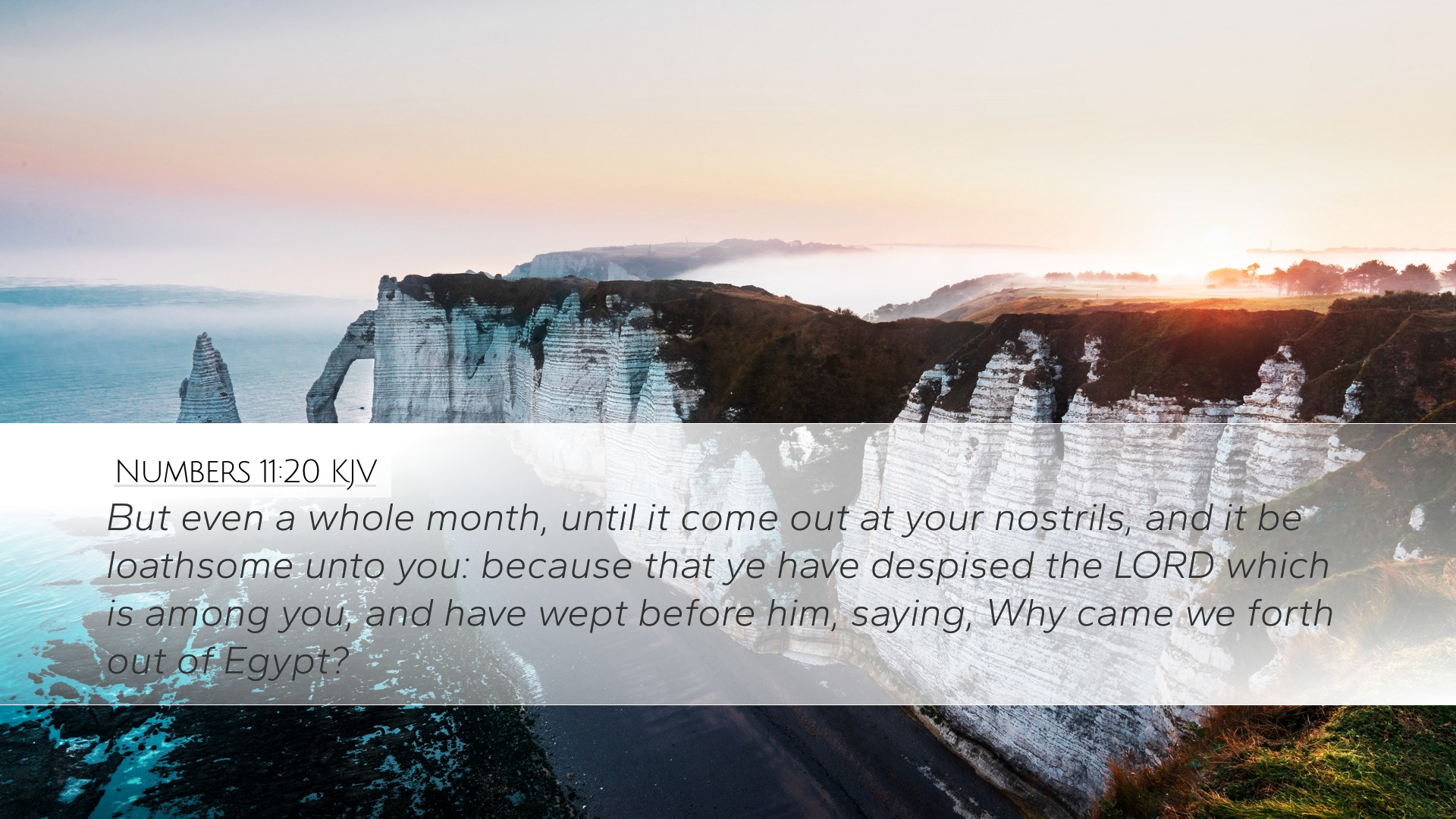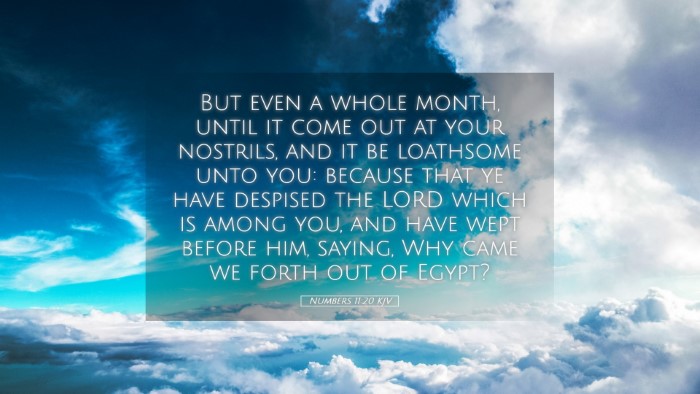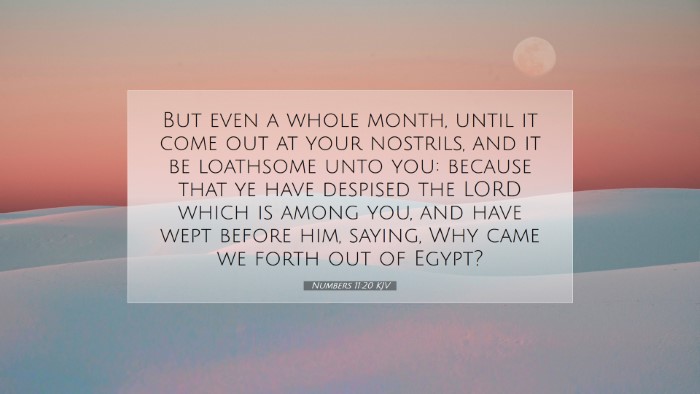Commentary on Numbers 11:20
Numbers 11:20 states:
“But even a whole month, until it come out at your nostrils, and it be loathsome unto you: because that you have despised the Lord which is among you, and have wept before him, saying, Why came we forth out of Egypt?”
Introduction
This verse occurs within the context of Israel's complaints and the subsequent provision of quail by God. The Israelites' dissatisfaction with the manna leads them to express their desire for meat. God responds to their complaints with a severe prophecy indicating the manner of their punishment and highlights their attitude of contempt toward Him.
Contextual Analysis
In the previous verses, we observe the Israelites lamenting over the limited diet of manna, reminiscing about the variety of foods they had in Egypt. Their words reflect a fundamental ingratitude and a lack of faith in God’s provision.
Key Themes
- Divine Provision: God’s ability and willingness to provide for His people, even in their grumbling.
- Judgment for Despising God: The severe consequences that arise from a lack of trust and respect for God.
- The Weight of Desire: The dangers that come with excessive craving, and the fulfillment of desires without considering their spiritual implications.
Verse Breakdown
“But even a whole month...”
This phrase indicates the duration that the Israelites will be provided meat, emphasizing the abundance of what they sought but also underlining the seriousness of their complaint against God. Matthew Henry notes that God's provision would be beyond their satisfaction, leading to their own discomfort.
“...until it come out at your nostrils...”
The graphic imagery here conveys not only abundance but also disgust. Adam Clarke suggests that God often allows people to indulge in their desires until these desires no longer satisfy but instead bring revulsion. This aligns with the notion that our pursuits can lead to greater misery when sought outside of God’s will.
“...and it be loathsome unto you...”
The quail that they craved would become something they despise. Albert Barnes emphasizes this concept of the loathsomeness of sin. What was once desired can become a source of suffering, mirroring how sin promises pleasure but ultimately leads to discontent and revulsion.
“...because that you have despised the Lord which is among you...”
This phrase points to the underlying issue: a heart that despises God is ultimately behind their complaints. Henry suggests that to complain against God is to reject His authority and provision. This highlights a theological understanding of the nature of sin; it is not merely acts of disobedience but originates in a disdain for God's character and sovereignty.
“...and have wept before him, saying, Why came we forth out of Egypt?”
The irony of their lament is profound. They question their exodus from Egypt, forgetting God's deliverance and the harshness of their captivity. Clarke comments that this reflects a lack of memory of God’s past faithfulness. This serves as a warning to believers about the danger of forgetting God’s goodness amidst trials.
Theological Insights
This passage serves as a rich source for reflection on God’s character and human nature. Here are some theological insights drawn from the verse:
- God’s Patience: Despite Israel’s constant complaints, God continues to respond with both grace and correction, illustrating His patience.
- Human Discontent: The human heart’s tendency to find fault and seek satisfaction outside of God’s provision is a recurring theme.
- Consequences of Sin: God’s allowing the Israelites to experience the bitter fruit of their own desires serves as a reminder of the serious repercussions of disregarding divine authority.
Practical Applications
For pastors, students, and theologians, this verse reminds us to consider how we express our desires and dissatisfaction:
- Examine Desires: One must be vigilant about the nature of their desires. Are they aligned with God’s will or do they stem from discontentment?
- Gratitude in Provision: Maintaining a heart of gratitude for God’s daily provisions can help combat the urge to complain.
- Teaching on Consequences: It’s essential to teach the consequences of despising God’s gifts and how we should seek to honor Him in what we do seek.
Conclusion
Numbers 11:20 serves as both a warning and a profound teaching on the nature of divine provision and human desire. By reflecting on the lessons embedded in this verse, we can gain deeper insights into our relationship with God, our spiritual appetites, and our responses to His guidance. This passage beckons a return to remembrance of God's faithfulness, encouraging believers to cultivate a heart that cherishes divine provision rather than lamenting over earthly cravings.


